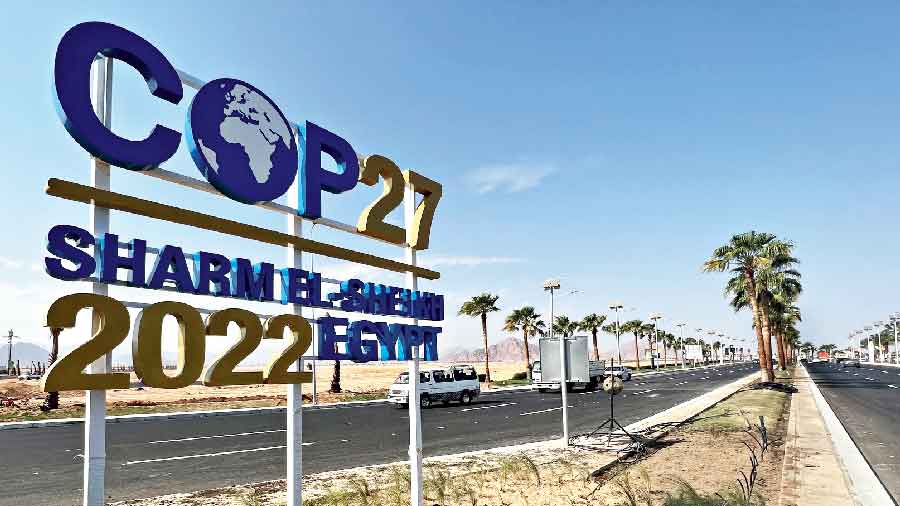The global mean temperature in 2022 is estimated to be 1.15 degree Celsius above the pre-industrial (1850-1900) average, likely making the eight years from 2015 the warmest on record, the World Meteorological Organisation said in a report on Sunday.
The report titled WMO Provisional State of the Global Climate 2022 released at the 27th Conference of Parties to the UNFCCC on Sunday stated that the rate of sea level rise has doubled since 1993 and has risen by nearly 10 mm since January 2020 to a new record high this year.
The past two-and-a-half years account for 10 per cent of the overall rise in sea level since satellite measurements started nearly 30 years ago, the report stated.
The figures used in the provisional 2022 report are till the end of September this year. The final version will be issued next April.
"The global mean temperature so far in 2022 has been 1.15 degree Celsius above the 1850-1900 average. If the current anomaly continues to the end of the year, the analysis would place 2022 as either the fifth or sixth warmest year on record (from 1850), and in each case marginally warmer than 2021. The eight years -- 2015 to 2022 -- are likely to be the eight warmest years on record," the report read.
Despite La Ni a condition keeping the global temperature low for the second consecutive year, 2022 is still most likely to be the fifth or sixth warmest year on record, the WMO said.
The 10-year average for the period 2013-2022 is estimated to be 1.14 degrees Celsius above the pre-industrial baseline. This compares with 1.09 degrees Celsius from 2011 to 2020, as estimated by the Intergovernmental Panel on Climate Change (IPCC) Sixth Assessment report.
The pre-monsoon period was exceptionally hot in India and Pakistan.
Pakistan had its hottest March and April on record. The heat caused a decline in crop yields. This combined with the banning of wheat exports and restrictions on rice exports in India are threatening the international food markets and posing risks to countries already affected by shortages of staple foods.
Record-breaking rain in July and August led to extensive flooding in Pakistan. There were at least 1,700 deaths and 33 million people affected while 7.9 million people were displaced.
India also reported significant flooding at various stages during the monsoon season, particularly in the northeast in June.
Around 700 people died due to floods and landslides, and another 900 from lightning. Floods also triggered 6,63 000 displacements in Assam, the WMO observed.
"The greater the warming, the worse the impacts. We have such high levels of carbon dioxide in the atmosphere now that the lower 1.5 degree Celsius of the Paris Agreement is barely within reach," said WMO Secretary-General Prof Petteri Taalas.
"It's already too late for many glaciers and the melting will continue for hundreds if not thousands of years, with major implications for water security. The rate of sea level rise has doubled in the past 30 years. Although we still measure this in terms of millimetres per year, it adds up to half to one meter per century and that is a long-term and a major threat to millions of coastal dwellers and low-lying states," he said.











